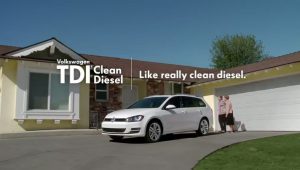A week from the one-year anniversary of the infamous emissions scandal, Volkswagen is still reeling from what could be the worst headline in company history.
The German automaker admitted over eleven million diesel cars worldwide were programmed with a software that can properly identify laboratory testing conditions, and make temporary changes to emissions output to meet regulation standards. In reality, these engines emit up to 40 times more NOx than expected.
To make matters worse: from 2008 to 2015, Volkswagen launched a “clean diesel” ad campaign, preaching environmental responsibility. Already having great fuel economy and performance, VW was able to further attract customers by offering a “greener” choice than their competitors and cement their position as an industry titan – recently passing Toyota as the world’s largest automaker. This storm of deception created by VW ultimately took the wind out of the sails of its legitimate, ethical counterparts, who lost many potential customers due to these false advertisements.
As an avid supporter of a market economy and a strong believer in the invisible hand, I believe the government should loosen its grip on the economy. However, with less regulations, unscrupulousness acts like this occur more frequently than I’d like to admit. The actions of Volkswagen show that government intervention may be necessary to maintain integrity: every company deserves to compete on a level playing-field.
The more important factor to consider is how the violation caused irreparable damage to the environment. There are much more toxic fumes coming out of the tailpipes of VW vehicles than we originally thought – 250,000 to one million extra tonnes each year, to be exact. With climate change being a pressing issue in the world today, “emissionsgate” could deal a crushing blow to Volkswagen’s public image. Enterprises must adopt certain social responsibilities not only to fulfill moral obligations we have as humans, but also to appease the general public, especially the eccentric world of social media, where news stories, good or bad, can spread like wildfire.
Volkswagen’s questionable business ethics and negligence of social responsibility have certainly tainted the pristine image they’ve worked so hard to uphold. Can they win the public back? Yes. Can they produce rule-abiding automobiles? Yes. Do they need to take a good look at themselves in the mirror? Absolutely.
Word count: 377
Sources:
Gates, Guilbert, Jack Ewing, Karl Russell, and Derek Watkins. “Explaining Volkswagen’s Emissions Scandal.” The New York Times. The New York Times, 2016. Web. 12 Sept. 2016.
Topham, Gwyn, Sean Clarke, Cath Levett, Paul Scruton, and Matt Fidler. “The Volkswagen Emissions Scandal Explained.” The Guardian. Guardian News and Media, n.d. Web. 23 Sept. 2015.